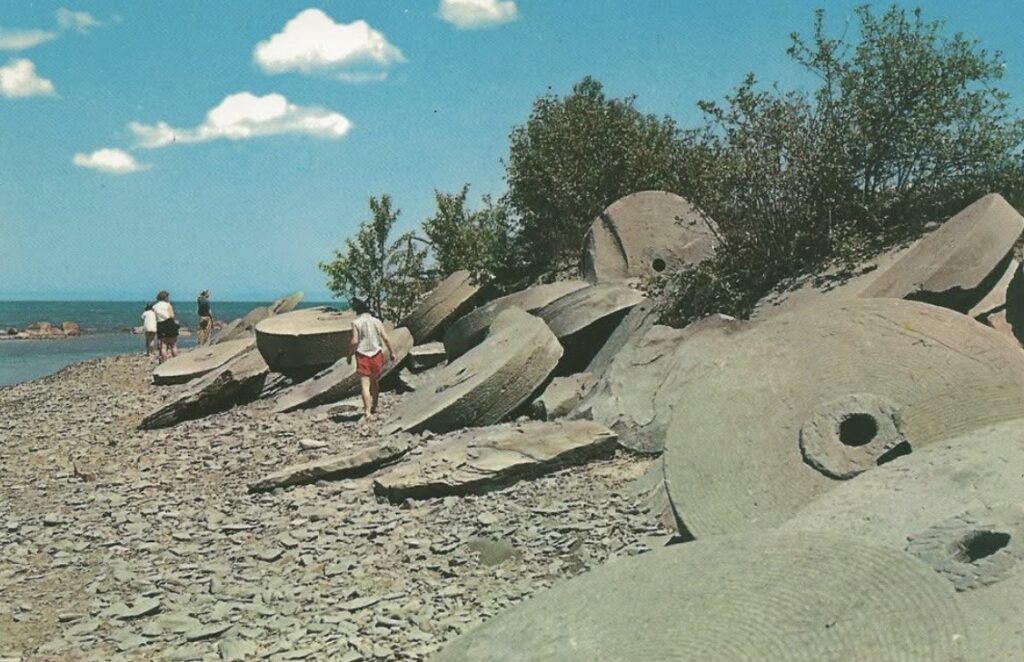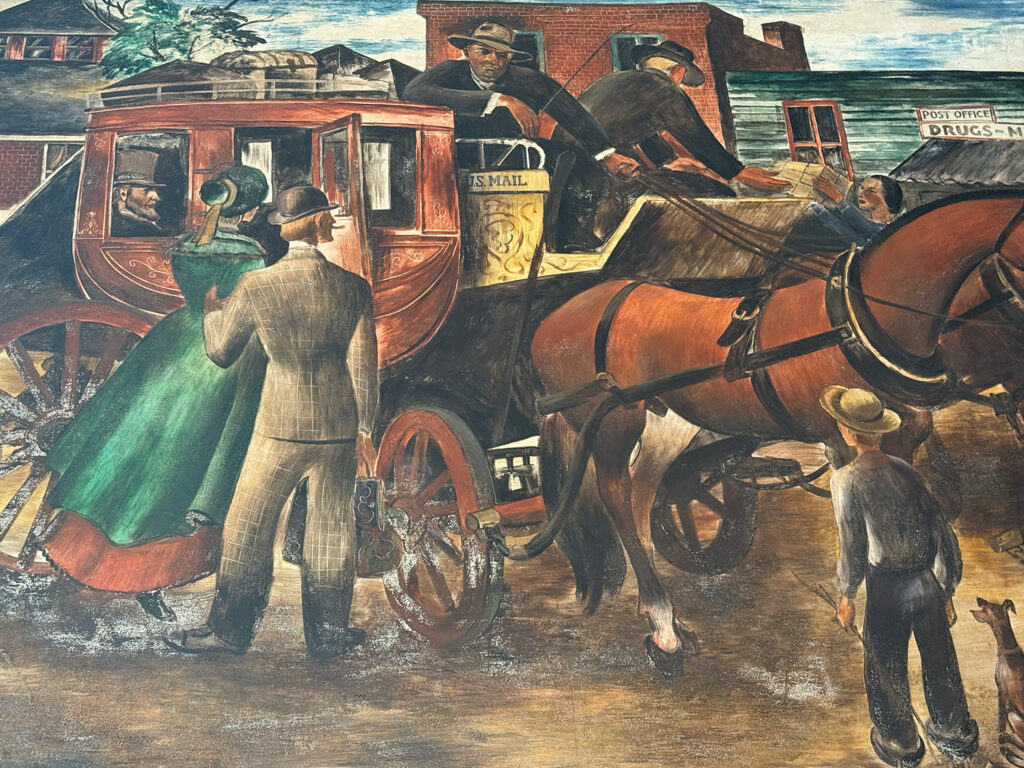On the edge of downtown Detroit stands a four-story building bursting with used books. In 1983, John K. King Books moved into the abandoned Advance Glove factory from its spot inside the Michigan Theater.
Walking into John King’s, I’m transfixed by the chaos that envelopes me. There are books everywhere—one million, maybe more. They’re piled up on tables, stacked against walls, spilling out of bookshelves with a hand written and sometimes indecipherable coding system. Imagine the Library of Alexandria recovering from an earthquake in an abandoned Rust Belt factory. The scholarly librarians are shuffling through the narrow passageways in canvas aprons with leather straps and metal rivets. It’s the clash of industry and underground academia. And it’s awesome.
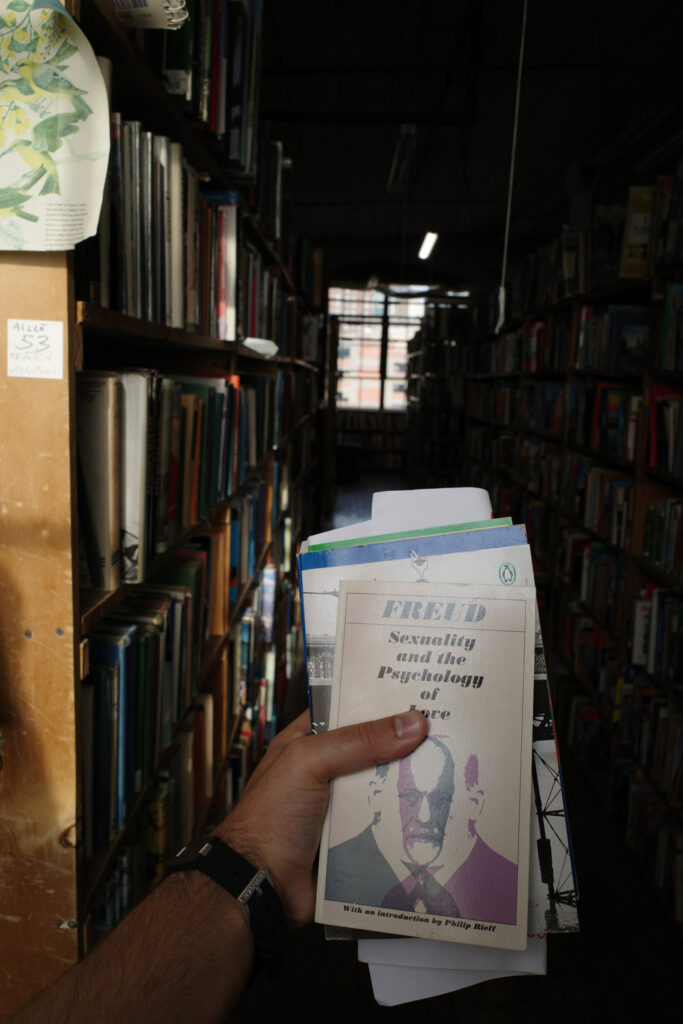
There’s something haunted about the place, with its yellowed pages and the distinct smell of dust, mothballs, and something a little bit damp that would be concerning if it weren’t so seductive. It feels like a place locked out of time. As I pass the register, an old woman asks me to leave my bag behind the counter and to take a map so that I don’t get lost. Normally, I’d be annoyed at having to leave my tote bag and the underlying assumption that I might try to steal something, but I get it. Their domain is too large for surveillance and their treasures too alluring.
The map isn’t much help, but the struggle to discern it adds to the sense of adventure. Like deer paths in the Michigan woods, thin trails run over the old floorboards. I’m a man on the hunt, passing shelves lined with classics, freemasonry, Christian studies, and Michigan history.
Eventually, I reach the stairwell. Climbing up the wide steps, surrounded by old movie posters, drawings, prints, and Sharpie messages, the frosted glass windows (frosted from age, not design) brought odd beams of light across the dark way up.
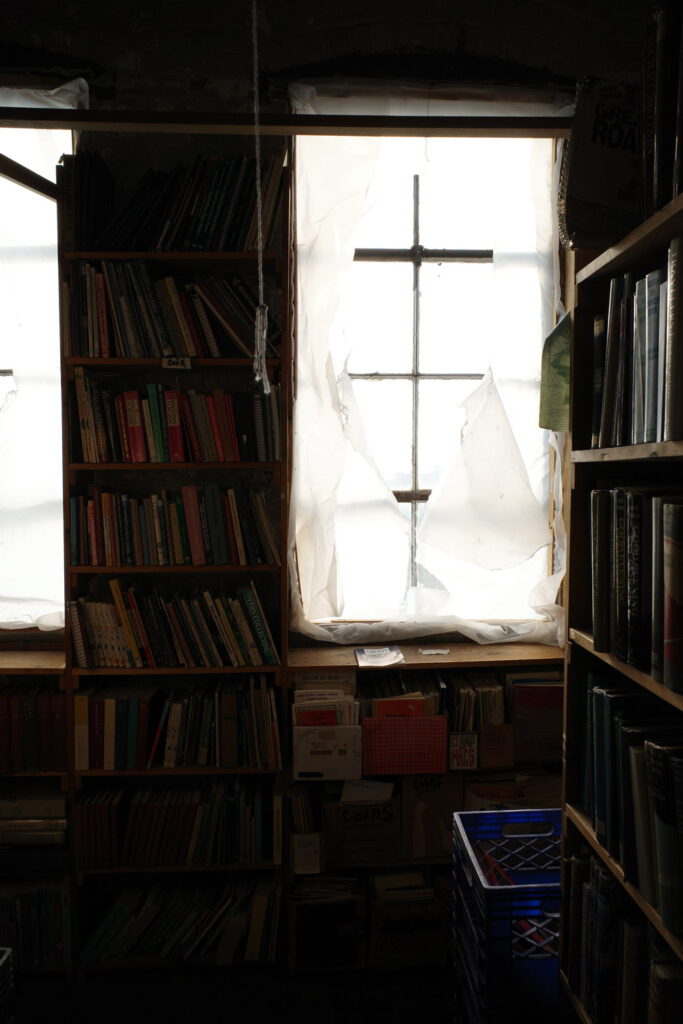
The second floor was more open than the first, but just barely. The lack of a cashier counter only meant more room for more shelves. Toward the back and off center to the right ran a section of paperback novels—everything from early 2000s vampire romance to 20th century English lit.
Freud had been on my mind, so I went to the psychology section in search of the discipline’s father. There I found decades old textbooks, case studies, commentaries on Freud and Jung, and a whole lot of esoteric German musings. But I couldn’t find anything written by the man himself.
Luckily, a fashionable older gentleman with generous botox and lip filler agreed to help me in my search. He’d only recently been inducted into the religious atmosphere with gainful employment, but he was of great help. Not much is cataloged here, so we went back to the shelves and turned over every book there until we found two works written by (and not about) Freud.
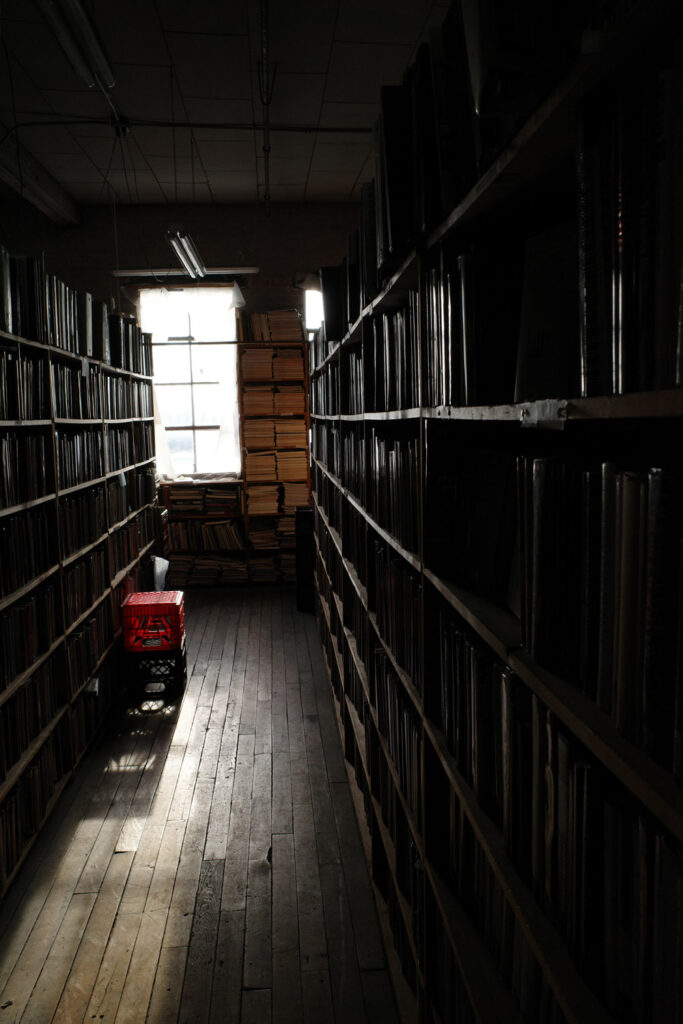
Up on level three, I continued my search for I don’t know what, led only by my killer instincts and carefully cultivated literary tastes. In shelves loaded with some of the most well-known and beloved novelists from the past two centuries, I squeezed past e-girls in doc martens with an “Ope, sorry just need to get through.” I smiled when my eyes met with what I imagined were cool Gen X lit professors. And I found copies of “Brighton Rock” by Graham Greene and “Scoop” by Evelyn Waugh
On the fourth floor, the open space had made substantially greater claims than in the three below me. The windows were poorly draped in thick and haunting plastic that flirted with the cold breeze, adding to the haunted energy of books abandoned by past lovers and masters. In back were books on foreign and dead languages, mythologies from cultures long gone, and works from saints and theologians who had conquered the pagans on the shelf behind them.
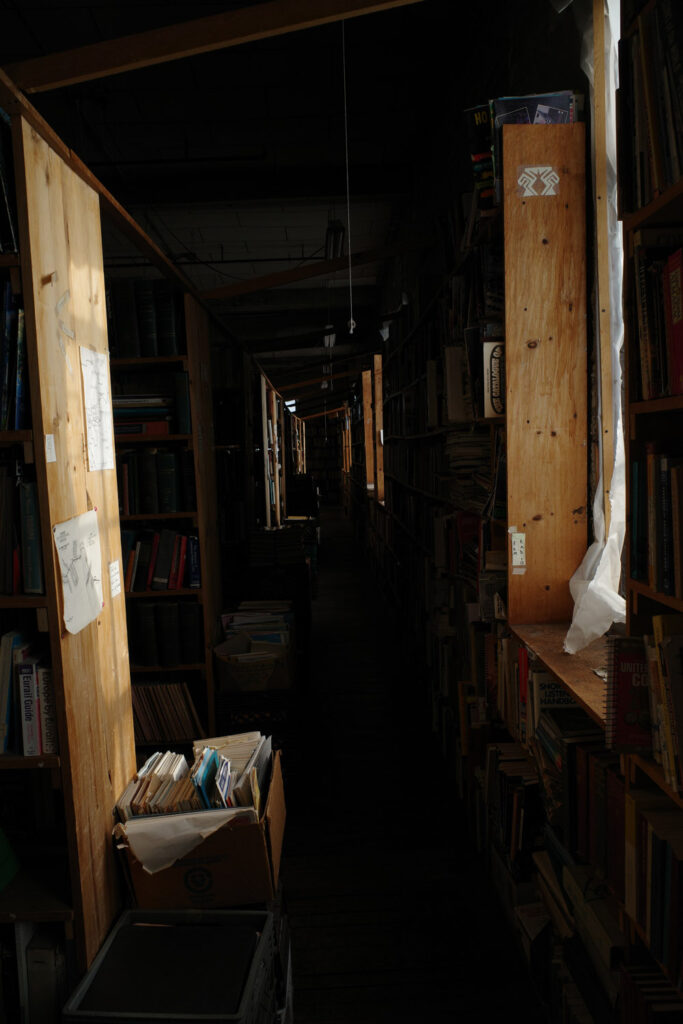
Before I left, I went to the first floor to make a cursory scan of the small classics section for the searcher who doesn’t want to search upstairs and came away with a falling-apart copy of Joan Didion’s “Slouching Towards Bethlehem.” Then I slouched toward the register.
The number of books in that massive building is impressive. The rundown industrial look inside is haunting and cool. But the books in the store subtly intimate that no one is reading them, and the plastic covering the windows is not just for decoration. That indescribable book smell that you’re hit with upon arrival has a note of decay.
Almost half of Detroit is functionally illiterate, and the suburbs aren’t known for their booming literary scenes either. Detroit, like the rest of the Rust Belt, follows in the tradition of the postbellum South: It is in the midst of a gothic decline, propped up by memories of greatness and industry. But if we start going to John King’s more often, you at least get some good books out of the ordeal.
Caleb Wallace Holm is a contributing writer for Michigan Enjoyer. Follow him on X @calebwholm and Instagram @calebwallaceholm.

